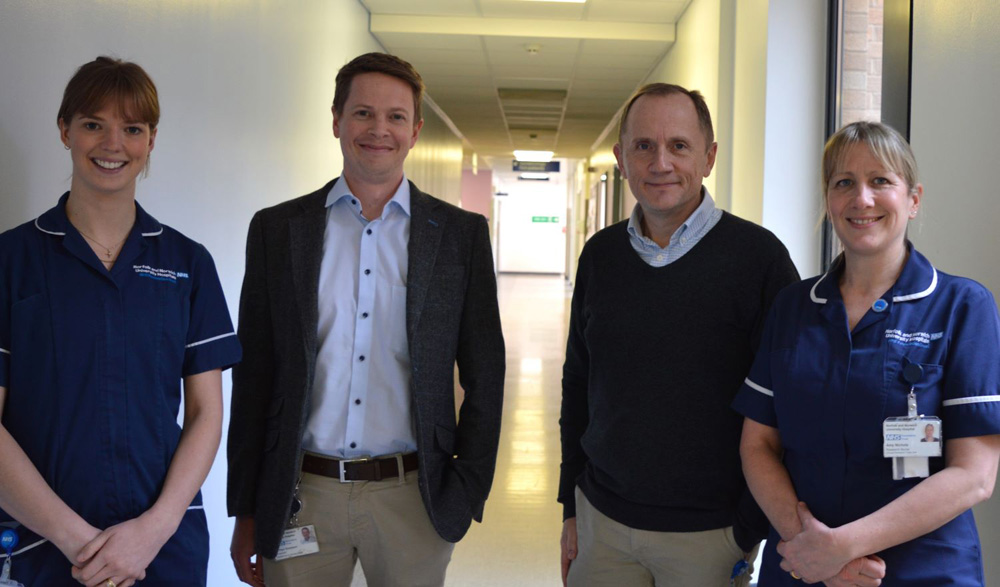A drug trial is under way in Norfolk to help a painful condition which affects a tenth of women in the UK.
The Norfolk and Norwich University Hospital is running test on a new non-hormonal drug which could reverse the debilitating symptoms of endometriosis and reduce the need for surgery.
What is endometriosis?
The condition occurs when the cells that normally line the womb are found elsewhere in the body and can cause painful symptoms including heavy periods, pelvic pain and, in extreme cases, scarring and damage to the pelvic organs.
The Gynaecology and Research and Development team at the hospital are researching how well the drug will work in reducing symptoms and inflammation.
Edward Morris, Consultant Gynaecologist and NHS East of England Medical Director is UK Chief Investigator on the study, said: “Patients with endometriosis have inflammation, which is a key component in disease progression and if it goes on long enough it damages tissues.”
“Whilst this is the first detailed study of a drug such as this on endometriosis, it is still early days and is likely to take several years from the realisation of a drug to it becoming readily available.”
Other hospitals in the UK are also taking part in this study and potential participants may be able to take part in the randomised study if they:
– Are female aged 18-49
– Have endometriosis previously diagnosed by laparoscopy (incision made in the abdomen and a thin tube with a camera (laparoscope) inserted to look for lesions, adhesions and endometrioma (cyst/s)).
– Willing to have laparoscopic surgery after study treatment.
Paul Simpson, Consultant Gynaecologist, who is the Principal Investigator at NNUH, added: “Everything so far in the treatment of endometriosis has suppressed the disease symptoms, but this new drug addresses inflammation and potentially reverse the effects of endometriosis without the need for surgery. It is different to every other available treatment for endometriosis because it could be disease modifying. Antibody based treatments are widely used in healthcare for treating some cancers and chronic inflammatory conditions such as rheumatoid arthritis and inflammatory bowel disease.”
For more information, email [email protected]

